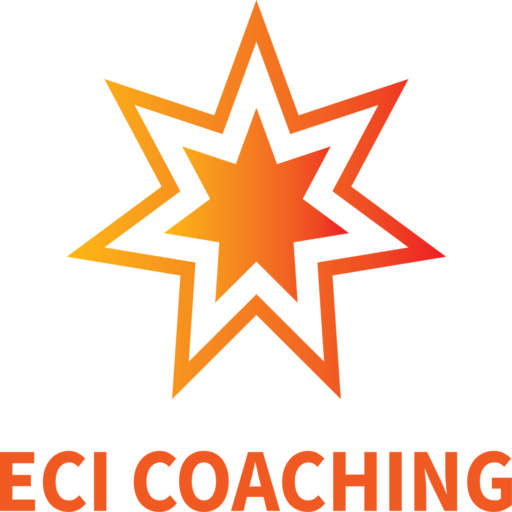ACC vs PCC vs MCC – Understanding ICF Coach Credentials

As more individuals and organizations turn to coaching for personal growth, career development, and leadership support, the demand for career and life coaches continues to rise. For those passionate about being a coach and guiding others toward meaningful growth, the first step is to pursue credible, structured training.
One of the most recognized ways to gain this credibility is through the International Coaching Federation (ICF). Under the ICF system, coaches can earn three main credentials: Associate Certified Coach (ACC), Professional Certified Coach (PCC), and Master Certified Coach (MCC).
Each represents a different stage of growth, with higher credentials requiring more training, coaching hours, and demonstrated mastery of ICF’s core competencies. Recognizing the difference between ACC, PCC, and MCC helps aspiring coaches identify what each level requires and which one is the right fit for their professional journey.
Why ICF Credentials Matter for Coaches
In an unregulated industry like coaching, anyone can offer coaching services without verified skills or ethical oversight. To uphold quality and professionalism, the ICF establishes global standards that ensure coaches are properly trained and effective in their practice.
Through this commitment to excellence, the ICF has earned its reputation as the gold standard in the field. Having an ICF coaching certification not only validates a coach’s professional credibility but also strengthens client trust and opens doors to broader career opportunities.
How to Get an ACC, PCC, or MCC Coaching Certification
Below is a breakdown of ACC vs PCC vs MCC to guide you in choosing the right coaching certification in Singapore for your career.
Level 1: Associate Certified Coach (ACC)
The ACC credential is the definitive entry point for individuals launching their coaching careers or seeking to integrate coaching into their professional practice. It provides formal recognition of foundational coaching competence and a commitment to ethical and professional excellence.
ACC Eligibility Requirements
To receive an ACC coaching certification in Singapore, applicants must:
- Complete a minimum of 60 hours of coach-specific training through an ICF-accredited program.
- You must have at least 100 hours of coaching experience with clients, including a minimum of 75 paid hours.
- Undertake 10 hours of mentor coaching conducted over a minimum period of three months.
- Complete a performance evaluation, demonstrating the practical application of core coaching competencies.
- Pass the ICF ACC exam designed to assess your understanding of fundamental coaching principles.
Why Pursue ACC?
Achieving the ACC certification comes with valuable advantages that support both your early development and long-term coaching goals:
- Establish your credibility as a new coach and stand out with a recognized professional qualification.
- Develop strong foundational skills that prepare you for real coaching scenarios and future growth.
- Use it as a foundation for growth by applying your skills at the ACC level or progressing toward the PCC credential later on.
Level 2: Professional Certified Coach (PCC)
Mid-career coaches pursue the PCC credential to validate advanced capability and deepen their professional credibility. It recognizes those who have refined their coaching skills through experience and are ready to showcase a higher level of competence, confidence, and ethical practice in their work.
PCC Eligibility Requirements
To obtain the PCC coaching certification in Singapore, applicants are required to:
- Complete at least 125 hours of ICF-accredited coach training.
- Undertake at least 10 hours of mentor coaching with a qualified ICF-credentialed coach.
- Accumulate 500 hours of coaching experience, with at least 450 hours conducted as paid sessions.
- Pass the ICF credentialing exam.
- Undergo a performance assessment to demonstrate advanced coaching ability and professional skill.
Why Pursue PCC?
Advancing to the PCC level brings significant benefits that support continued professional growth and recognition in the industry:
- Enhance your professional reputation by earning a credential that signals advanced expertise and reliability to clients.
- Demonstrate coaching mastery that goes beyond foundational skills, reflecting greater depth, confidence, and effectiveness.
- Achieve a lasting qualification that many coaches maintain as their long-term professional credential.
Level 3: Master Certified Coach (MCC)
The MCC credential is the highest accreditation offered by the ICF, recognizing coaches with extensive experience and advanced capability. It reflects exceptional professionalism and expertise, suited for those aiming to strengthen their reputation, lead within the industry, and pursue top-tier opportunities in coaching.
MCC Eligibility Requirements
To qualify for the MCC coaching certification in Singapore, applicants must meet specific training, experience, and assessment requirements that reflect the highest level of coaching mastery:
- Complete at least 200 hours of coach-specific education from an ICF-accredited training provider.
- Participate in at least 10 hours of mentor coaching conducted over a period of three months or more with an eligible ICF mentor coach.
- Demonstrate advanced coaching proficiency by submitting recorded sessions and transcripts for a performance evaluation.
- Accumulate a minimum of 2,500 hours of coaching experience, working with at least 35 different clients.
- Pass the written examination.
Why Pursue MCC?
At this stage, the focus shifts toward refining expertise and embodying the true essence of coaching excellence.
- Gain global recognition as one of the highest-qualified coaches in the profession.
- Refine your professional practice to embody the highest level of skill, authenticity, and discernment in every coaching conversation.
- Advance your career to its fullest potential, perfect for coaches committed to mastering every aspect of the coaching craft.
Do You Need an ICF Credential to Coach?
While it’s possible to work as a coach without formal credentials, the difference lies in the level of trust and opportunity a certified coach can command. Many professionals pursue an ICF credential, whether ACC, PCC, or MCC, not because it is mandatory, but because it strengthens their credibility and opens doors to larger, more established clients, especially in corporate and organizational settings where certified coaches are often preferred.
For independent or niche practitioners, certification may not be strictly necessary, yet it still offers lasting value. The process enhances a coach’s self-awareness, refines their communication and listening skills, and deepens their ability to facilitate fundamental transformation, ultimately raising the quality and impact of their coaching practice.
How to Choose the Right ICF Coaching Credential Path
Finding the right ICF credential is a personal and strategic decision. Take time to reflect on what matters most to your growth and the direction you want your coaching journey to take. Consider your:
- Goals: What do you want your coaching to achieve in the next few years?
- Clients: Are you currently coaching individuals and small groups, or do you aim to work with senior leaders and organizations? Your ideal client base can help determine whether to pursue a beginner or advanced-level credential.
- Experience: Assess your current stage of practice. Are you still refining your approach, or consistently demonstrating confidence and results with clients? Let your progress guide your next step.
- Aspirations: Do you want to strengthen your mastery, expand your reach, or deepen your professional credibility?
By considering these factors, you’ll gain clarity on which credential best fits your present stage and future ambition.
Is ICF Credentialing Worth It?
Pursuing an ICF credential requires dedication, time, and financial investment, but the rewards often reach far beyond the effort. Beyond strengthening your credibility, it signals to clients and organizations that you’re serious about growth and excellence in your craft.
In a world where coaching standards are rising, ICF-certified coaches stand out for their professionalism and integrity. Earning this credential not only positions you for new opportunities but also helps you develop greater confidence and purpose in how you help others grow.
Earn Your ICF Credential With ECI Coaching

Now that you understand what the difference between ACC, PCC, and MCC is, you’ll have a clearer sense of which credential best aligns with your goals and experience.
If you’re considering pursuing your ICF coaching certification in Singapore, our coach training packages at Executive Coach International (ECI) are designed to simplify the process and guide you at every step, whether you’re beginning your journey with the ACC, ready to advance toward the PCC, or striving for mastery at the MCC level.
Getting ICF-credentialed can feel overwhelming, especially with the extensive training hours, guided mentor coaching, and detailed documentation requirements involved. That’s why we provide structured support and clarity throughout the application process, helping to eliminate confusion and keep you focused on what matters most: developing your coaching skills.
Whether you’re just starting or looking to level up, our programs for coaching certifications in Singapore are tailored to meet ICF standards and support your journey with confidence and ease.
Contact us today.

